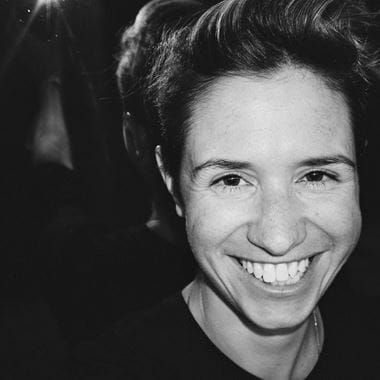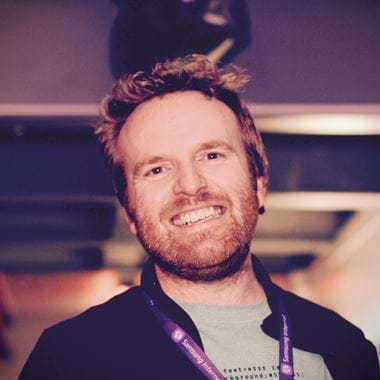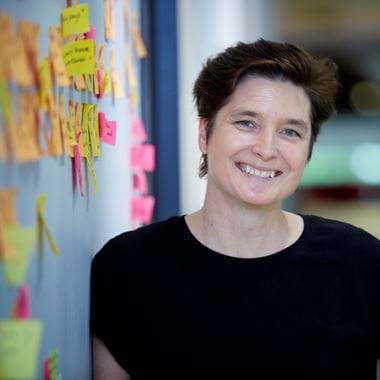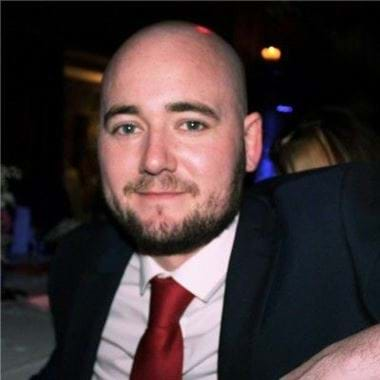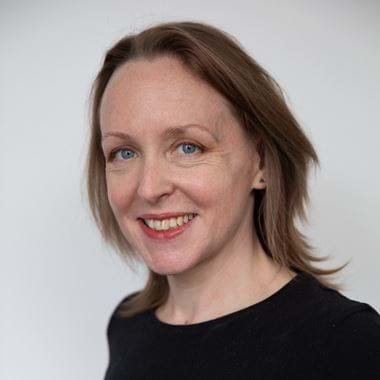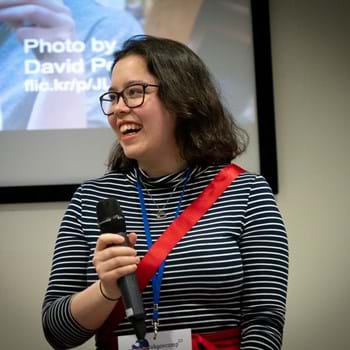
Coco Chan
Coco Chan
Coco is a versatile digital professional with experience in local and central government. She cares deeply about creating accessible and intuitive services at all levels. She is equally adept at designing and building hyper-local services, such as reporting graffiti in your neighbourhood or a missed bin collection, as she is operating in large-scale crisis response scenarios, for example the Homes for Ukraine sponsorship scheme. Prior to joining the public sector Coco trained as a scientist, and she brings this grounding in data, evidence and analytical thinking into her role working in digital service teams at the Department for Levelling Up, Housing and Communities.
Taking fun seriously: building positive team culture in challenging environments
In this talk, Coco will make the case that fun is an essential part of creating and sustaining high-performing teams. She will share stories of the fun experiments her team have tried (even in serious contexts), and encourage you to find frequent small moments of joy that build team connection and trust.
Hi, everyone, great to be here at Camp Digital. Thank you for being here. Before I make a start, I want to plug to the sessions happening this afternoon. I'm here because last year myself and my colleague Jess spoke for five minutes. It was the first time we spoke on a stage, we sat down and spoke to each other and said, that was amazing, how do we do it again. So much of the experience was great. We had a lovely friendly, enthusiastic audience in front of us. So if we can recreate that atmosphere for this year's new speakers, they'll really appreciate it. If you are sticking around after the break, support them, I know they'll appreciate it. 12 months ago, this scenario would have been inconceivable to me to talk about something that apparently is quite trivial and not very important. And when I sent in my talk title I got the fear. I was like, is this a terrible idea?! And just to give you an idea of what has been going on in my brain for the last week, it's been saying, what on earth are you doing, nobody will take you seriously, you are about to ruin your professional credibility. We'll find out if that is about to become true.
Rather than be overwhelmed by the fear and say, don't do it, pull out, I tried to be curious about that feeling and say why does it feel scary to talk about fun? Why does this feel like a topic we never talk about in a professional setting? It's because we have got some strong social constructs, often one written rules that say, work and play, work and leisure, these are opposites, those two things never come together. And I'm here to tell you that they can and they should. I thought I would start by calling out some of those things we hear. There are myths that we are told about fun and work, because I think unless we can call them out and name them, it's hard for us to challenge them and say, do we really believe that? There are three I'm going to take you through. The first is that fun is only for start‑ups or companies with lots of money. I think this comes from the media portrayal of what we are showing you what it means to be a fun, up and coming workplace. Some examples. Do you have bean bags at the office? I'm afraid if you are sitting on a normal chair, you are not fun are you?! Do you have table‑tennis? If you are not having one of those, you are not doing very well either. Of course, the pinnacle of the fun workplace is, of course, the slide! Why would you want to use stairs or a lift? Far too conventional. My real problem with this, as our image of what we are told about what it means to be a fun workplace.
This is fundamentally not inclusive or accessible to everyone. To enjoy this fun, you have to be in an office, physically able to engage in these activities and you have to be someone that's extroverted. If you don't like crowds, noises or lights, this is not acceptable to you. If those are not a barrier to you, it's so expensive. For most, this would not be a table. I work in the public sector, Civil Service, if I said to my boss, I want a slide in the office, I would be laughed out the room and they would say it's not a good use of money. Some ways to incorporate fun in a way that is genuinely inclusive and doesn't cost any money.
Myth two is, you can have fun or productivity but you can't have both. This idea that fun is fundamentally a waste of time and we shouldn't be having fun. So that may be true if you work in a job that looks like this.
There is a direct linear relationship between the number of hours you spend at work and how much output you price. If we chopped five minutes off the line, we'd see less business output. So, classic example. If you work in something that is process‑driven, a factory line, turn the line off for five minutes, clearly fewer products will fall off the end. Most of us don't work in process jobs, we work in knowledge jobs. So what we were paid for is how we think, solve questions. We don't have this direct linear relationship. Ours is much more wobbly. So it might be, flatlines in the middle because we were waiting for a decision from a senior stakeholder or an investment case to go through and we can't make any progress. Or we have sat in a research lesson and learnt loads in half an hour that's just hugely accelerated our thinking. So this kind of space, if we can take two minutes out of our day to do something a bit different, that doesn't really affect our productivity, it's dependent on where you take that time out of. I want to get away from the idea that fun and work are two extreme ends of the spectrum. These are the extreme scenarios we imagine. On the left, we spend 100% of our time doing serious, productive things. Back‑to‑back meetings, never take a break, no time for small talk. I have worked in teams like this. Sure you get a lot done in the short‑term but my goodness are you exhausted. That is not a sustainable pattern of work to be completely focused all the time. It's not how our brains work.
The opposite side of the spectrum, do as little serious work as we can get away with and enjoy the rest of the day enjoying our colleagues. My bosses would say to me, what are you doing, you are not taking your job seriously. I think we can be somewhere in the middle. I aspire for something like this and we say the vast majority of our time we are doing our serious work and I care so much about the problems that I work on and the users we serve and I want to spend my time doing that work, but also it's okay to have moments of light relief in our day. It's okay to have moment where we enjoy the company of our colleagues. It's the middle ground of aspiration. My third is, you can't be fun and be seen to be professional. My main problem with professionalism is, this is an uneven playing field. A couple of headlines. The top one, this was a woman with a job sent home from work because she wasn't wearing high heels so. Her place of work, professionalism was dictated by what colour shoes you had on your feet. Another more recent study, about Afro‑hair styles, if they wore natural or braids, they were seen as less professional than those with European hair styles. This is so arbitrary. We can be incredibly serious, never crack a smile, never make a job. Those are our three myths I want to bring to you today of the I want us to question, do we think these things are true? If we do, are we so confident they are true universally 100% of the time, that we are going to get the social constructs dictate how we behave every moment of everyday we spend at work. Goodness knows, that is a lot of time. If we think they are not universally true or we can make occasion that they are untrue, we can make spaces to be different. I'll talk to you about why I think fun is so important and we should all have more fun at work. It works for teams, organisations for us individually and for our users. We'll start with teams. The first point is around, how digital teams work. They work in a model. A high trust. How do we build trust? We can build trust. Let me explain. If you work in a hierarchical team where the power sits at the top with the most senior person, the way it is is, they can dictate and they say, I am telling you what to do because I'm senior. Most teams don't look like that anymore, they look like this. We hire for flat teams, people with multiple disciplines and say, you collectively have power, you decide how you get stuff done. This scenario, if I'm trying to get an idea through, I can't just say do it because I tell you to, it's much more collaborative. It's, I've got this idea, what do you think about it, what is going to go wrong, how can we prioritise it? It's much more collaborative. We need to trust each other and trust that when we put our ideas out in the world, people are going to receive things generously and give us constructive feedback. We need to trust in the knowledge of our colleagues, that they treat you as equal and they trust that your knowledge is valuable.
If we want the high trust teams, how do we build it? Fun is a great way to do it. If we can have a laugh together, we can say it's fine, I can be silly, you can laugh at me, that is showing our vulnerability, saying I'm a safe person to be around. Every time we share the vulnerability and it's met with kindness and not insults, we are building that relationship with our colleagues too.
It shows a bit about ourselves as humans as well. Next, we need, as a sector, to need to hold on to great people. So, we all know that people with skills are highly in demand. More companies are recognising they need this stuff. Our best people are more available than ever to recruit. So we are going to hold on to them. You have to pay people properly, or they will leave. Really important. Also, development, you have got to give people opportunities and give them space for learning, otherwise people leave. When I have talked to people who stayed, often in spite of low conversation, what do they say, they say I like my colleagues, I enjoy coming to work, I like spending time with the people I work with. We need to pay people properly and give them opportunities, but we also need to make it a nice space for them to spend their 40 hours a week. That is important if we want to hold on to the best people. For us as individuals, this works too. Mainly because the fun is a great counterbalance to stressful situations. I've worked on some really important Government programmes, stuff you will definitely have seen in the national news and in context where we are very consciouses that bad decision‑making has real human world consequences domestically and internationally. That is a stressful context to be in where you know your work is important to the world. I work closely with user researchers and what we do, when we have the sessions and speak to participants, often we are asking them to recount to us the most difficult stories. We say, tell us where this situation didn't work for you, tell us how the system has not supported you, or how the things that we build are actively causing you harm.
If we are constantly hearing those human stories, and that is what we need to hear in order to make products and services better, well how do we sustain ourselves through that context? How we sustain ourselves is we find moments of relief. We need to have times where we step back and have a moment to ourselves and take a breath and talk about something that's not the problems right in front of us. I think it's unrealistic to expect that turning off to only happen at 5.30, which is like, if you have been through eight or more hours, of continuous stressful context, difficult conversations, then it's like, it's 5.30, we are magically going to turn your brain off now right, that's not how it works. If people are going to sustain themselves with the difficult contexts, I think we need to find members of relief throughout the day as well. It's not just when we switch off at the end of the day.
As humans, we have a tendency to self‑censor, we are going to stop ourselves from sharing ideas that feel novel or against the status quo to say, someone's going to think we are silly or haven't thought this through or it's half‑formed or will never work. Techniques that include play and things that encourage us to get silly, that's often where the most interesting ideas are. Even if we say most of this would not work, there's a bit that would work. It's exercises, like, getting people to draw pictures and we can push them beyond their limit of where they would normally share and we say can't the stuff that feels daft be there, and that get us to create fun ideas. Fun is motivational. These are from Duolingo, it's gamification. We take things from games, put them into things that aren't games because we know our brains love them. Levels, leader boards, badges, points, prizes. We love it and keep coming back to it. We have zero real world value in these. There is the idea of a streak, so it counts how many days you have logged in, and it says you have been online for 250 days, and once you get to a sufficiently high number, it becomes, like I can't let my streak go, such a big number, even though the only person that cares about it is you. I think we all want to be in workplaces where we are excited to do the work, we want to work with people who are motivated. We can incorporate a bit more fun and we can have that too. Finally to the most important group of people. Our users, or customers or clients, in Government we call them users. We can't do right by our users if we are unhappy, exhausted and don't like our colleagues, and if that is our environment, unhappy teams create bad services. We create bad services because when you are in a stressful environment under acute stress and don't have the support network around you, don't have the moments of relief and don't trust the people sat next to you, you start making short‑termist individualistic decisions, like saying how do I get rid of this immediate problem in front of me. That is not user‑centred anymore, that's survival mode. I've been there and it's a horrible environment to be in. Ultimately, what are we here for if it's not for endeavouring to create good services? Our team culture and environment has a direct impact on the people we exist to serve.
We will move on to how now. So sufficiently convinced that we should be having more fun. How do we incorporate it? These are stories from my life in the Civil Service and how you make it fun and productive. Before I share the ideas, I want to say a few words. Many of these ideas I have stolen from others, some here, some on the stream. What bind them together are things we have tried in the teams we have worked with. They might work for you too. They might not work for you, and this's okay. The reason they might not work for you is, it might be your context is fundamentally different. So we were most mostly a remote team, 8‑10 people. I will not tell you to take these to the next ministerial meeting. If you have experienced the toxic environment, and if you have been shut down for trying things like this, or if you come from a marginalised group and you have had to work harder to gain the credibility that you have now, their guard might be higher, so I share this, so you might find inspiration from them but don't expect that you are going to copy and paste them into the environment, and they are immediately going to work.
Finally, if your culture a fundamentally broken, people are unhappy, stuff like this won't fix it, it will be seen as papering over the cracks. If your culture feels stale, this stuff a great. Four things I'll share with you, both the thing itself and how it works and also why it works. The first is picture check‑ins. We use this a lot and give people a range of images and say tell us which image feels like you or resonates with your work‑life in the last month or whatever time period. I promised there would be cats in this presentation. These are the cats that belong to me and my co‑presenter. We love them. The reason why this works as a method is, pictures help with language to emotions that are hard to express. Especially if people have been going through a difficult time, especially if you are in a group setting, it would be hard for you to open up, to find the right word to express how you are feeling. If you say, pick an image, it can give us that vibe and enough that maybe we think we need to check in with that person later without them having to say too much.
Also it allows them to share as much or little as they want to. Often we say, why did you pick that image, and they can say, one sentence or they can go on a bit longer and tell us more. This is very much participant‑led. You decide how much you share in the setting which you exist in. This is also nice, because you get to know the facilitator. We rotate every time and you often get to know something about the person, whether it's a hobby or recent sports event, or cats, you get to know something about the person which is important to get to know someone on a human‑to‑human level. The second is, it's a joke a day, does what it says on the tin. Pick your messaging tool of choice, Slack, maybe, and post a joke in it everyday. It's so quick. So does it take, 16 seconds to Google a joke and put it online. I'm not an actual joke writer. Usually on this level, they are cheesy. How do you make a bandstand, take away the chairs. That’s the level we are talking about!
And the reason why this is so nice, it was started by our delivery manager and I carried it on. We did it for a full six months. This works because it's a conversation‑starter. We used to post these between 9 and 9.30 and they would often lead to someone messaging me saying, that was a good one today or I would complement them on their guess of a joke and that would lead into a new conversation. This was a lovely way to kick off the day. You could have a conversation with someone that you hadn't spoken with yet. The also creative thinking at the start of the day. We held back the punch lines. We let people guess. My team, they are so creative. So much interesting word play. And often the guess is better than the original punch line. It's great to get a different punch line. This became self‑sustaining. This is what with want, a team owned by the team, it's not one person driving it all the time. If I hadn't posted a joke by 9.20, someone else would post in and it became a great team activity and conversation that even once I moved on to a new job, they carried on posting jokes without me. That is what we'll get to, the team rituals owned by the team. The next one is the extreme scale of success, created by a colleague watching online. Hello. They came up a workshop we did last year about writing a talk. You draw a scale from massive success to abject failure and then you essentially go, what scenarios could sit at the most extreme ends of the scale? Start at the outer edge and work your way back in. This is one I wrote for my talk I'm doing today. It's the basis of a best‑selling book. I have no intention to write a book, but if you really like it maybe I will. Pushing ourselves to that extreme! At the bottom end we are saying, ruin your professional credibility and never work again! Not getting the vibe that that is happening, so that is great. The reason this works, it surfaces up the things we are afraid of. What is the thing that could possibly happen? What are we scared of? Once we can talk about it, we can have the conversation to say, is that actually going to happen? Is that likely? And if it is, what can we do now to stop it happening? Only once we can talk about the fear can we do something about it. At the top end of the scale, it pushes us to increase our ambitions beyond our ambition. You start to look and say, could we do that, are we willing to put in the effort? And maybe it's not possible, maybe we go nearer the top than we would have started. The last method, which is definitely the silliest thing I've ever done at work, and it started with, "wouldn't it be fun with..." and they say to me, wouldn't it be fun if you matched your teams background to your outfits so. Then this happened! I will say, this was meant to be a one‑day joke. Every time I tried to stop I got messages, like where's your teams thing. You don't have to take it this far. Most of the video software now have ways to incorporate colour, virtual background, you don't have to take it very far but it's fun!
The reason I really liked this, was this was happening during some of the most difficult work of my career, working very long hours, stressful stuff, in the public eye, and however much you love your job, there will be days when you don't want to get out of bed, you are so tired and it's like, what is going to get me out of bed. Sometimes it was this, this moment of colour and joy and a bit of laughter and the start to the day what I needed to get me up in the morning. This was the motivation because we would do this in the morning. It puts a smile on people's faces. When I'm looking out at a room of folks I admire and trust and they are a about to go into an eight‑hour back‑to‑back challenging day, if I can put a smile on their face at the start of the day, that is doing. So, that's the things we did. There are many, many more, some are daft and funny. Didn't make the cut. But if none of those feel like they would work for you, I do want you to think about how you can experiment, but keeping them within what I'm setting out, as guidelines and things to think about if you are making up your own experiments which I encourage you to do.
So, when we are posting fun activities, anyone should be able to join. We want to make sure that anyone can join and opt out at any time. Forced fun is not fun. We don't want to push people into something they are not enjoying. No cost to participate. They want to be short. Every single one of the things I've done today took less than five minutes to prepare. They should be repeatable and at regular frequency. That is what makes this work, if you can make it a part of your routine and team rituals, rather than something you do once and never again. They should be authentic to your team. So people will see through it quickly if you are putting on an act, so try and test things out until you find something that you need to use. People will say, for me it was the jumpers and for you it was something else. Nearly time for me to go. I wanted to share three final thoughts. If you take nothing away with you today, please take these things with you ‑ the first which I strongly believe, is it's possible to do serious work, be serious about your work and still have fun while doing it. Hopefully what you have heard from today is, I work on some really challenging stuff, stuff that I care about, difficult problems, but we still have a team culture like this. So, if your workplace doesn't feel like this, and you have been told, we don't do things that way, you can't have fun in a professional environment. It is possible, it can be done, because I've experienced it in multiple different places. But, that team culture doesn't just happen. Doesn't just come out of thin air. You have got to put in the work, something's got to happen. You have got to take some actions and your culture is about the behaviours we all demonstrate everyday, it's what we build. The great news then, if it's something that doesn't just happen, is that you can make it happen. You can create this stuff. Small exercises like this that start to build that trust and that laughter and that, it's okay to behave in this way, start to create an environment that feels more like this.
Finally, not everyone will feel safe to participate in activities like this or instigate them, for various reasons, especially based on whether they are a marginalised group or they don't have their job security. They are going to be reticent to engage. If you are someone in the room in a position of leadership and you can see this would benefit your team and you can see that more fun would be good for the people, individually, but also for the services that you create in your team, and all those good things, then I am inviting you to show you the way. If you can be a little bit silly, even for a moment, you are starting to give permission to others to do the same.
So, all that remains for me to be saying is, please go forth, do your own experiments, and please let me know how you get on. I really believe we should all have more fun at work. Try some stuff. Let me know how you get on, I'm on Blue Sky and LinkedIn and I look forward to continuing the conversation with you. (Applause)
